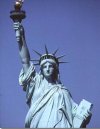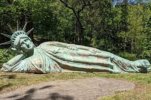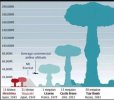October 25th is Saint Crispian’s day. So, lots of fighting in history.
On October 25th 732, the army of Charles Martel defeated the Arabs near Poitiers. This was a real turning point, stopping further Arab invasion into Europe. Moreover, Charles Martel, grandfather of Charlemagne, established the power of his dynasty in southern France.
On October 25th 1415, Saint Crispian’s day, Henry V and his band of Happy Few defeated the French knights at Agincourt. Lousy tactics of the latter (the retreating English were near starvation, and could have been forced to surrender without fighting), made their charges butchered by English bowmen. With this turn of fortune, Henry V enforced France to accept the Treaty of Troyes, which foresaw a personal union of both kingdoms. Henry would become King of France, after the ruling king of France, Charles VI, would have died. To seal the union, Henry married Charles’ daughter. Henry died however before his old father-in-law. His crown prince, the future Henry VI, still a baby then, would inherit the madness of his grandfather Charles VI. Back in England, there was a York family who still had to settle a bill with the ruling Lancasters, and seized the opportunity. The ensuing instability in England allowed the French to put Charles VII on the throne and take back control of their country.
Saint Crispian was less favourable to the six hundred Happy Few, when, on October 25th 1854, the British Light Brigade charged a line of Russian artillery in the valley of Balaclava, during the Crimean War. Unclear orders, confusion about the target and the eager of the cavalry for action, made the Light Brigade charge the wrong enemy position, because their intended objective was not visible from where they stood. The confusion had also seized Captain Louis Nolan, the officer who had passed the written order to Lord Lucan, commander of the cavalry division. From above, from where Nolan came, the positions had been clear, down in the valley, they were not. As the brigade marched, Nolan suddenly realized that they were heading into the wrong direction. But before he could inform Lord Cardigan, the leader of the brigade, he was killed by shrapnel. With canons on the left, canons on the right and canons in front, the brigade rode into the mouth of death. They reached the Russian lines, but were driven back by Russian cavalry. Actually, the charge was nothing but a skirmish that lasted about fifteen minutes, but the commanders were public figures in Britain, where a debate started about the responsibility for the deadly mishap. The debacle was ultimately turned into a victorious propaganda pamphlet by the poet Alfred Tennyson.
On October 25th 1983, American troops invaded the small island of Grenada in the Caribbean. Something about a ruler they did not like.



 , too.
, too. 




 )
)